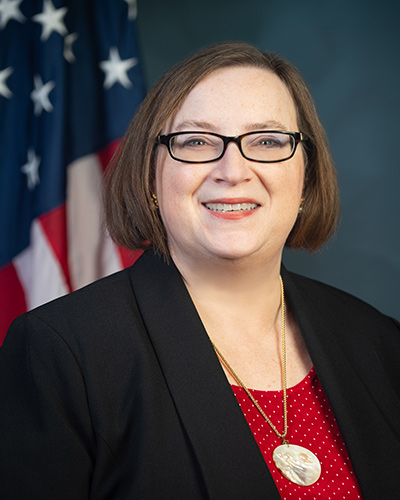The Federal Housing Administration (FHA) is rolling out relief to borrowers of Home Equity Conversion Mortgage (HECM) loans who are behind on property charge payments as a result of the COVID-19 pandemic, according to an announcement by the FHA and the Mortgagee Letter (ML) 2022-23, published on Thursday.
“The new COVID-19 HECM Property Charge Repayment Plan allows mortgage servicers to offer eligible homeowners up to five years to repay property charges, such as taxes and homeowners insurance, that the servicer advances on the homeowner’s behalf when the homeowner is unable to make these payments,” FHA said in the announcement.
Repayment plans
Under the terms of the ML, mortgagees are permitted to offer HECM borrowers a COVID-19 HECM property charge repayment plan if they have been impacted by the pandemic. Borrowers may qualify even if they’re currently on a standard repayment plan. The maximum length of this new repayment plan is 60 months, which is “not reduced by any time that a borrower utilized a standard HECM repayment plan,” the ML notes.
To qualify, the borrower can verbally attest that they have been financially impacted by the pandemic, the ML states.
“A verbal statement to the Mortgagee will suffice to document that the borrower is impacted by COVID-19. The mortgagee must document the borrower’s attestation in their servicing file,” the letter states.
Borrowers may also qualify despite being unsuccessful on a prior repayment plan or if the total outstanding arrearage exceeds $5,000 — or both.
“If the borrower is unsuccessful in completing a COVID-19 HECM property charge repayment plan, the mortgagee may evaluate the borrower for the standard HECM loss mitigation options,” according to the ML.
Mortgagees are permitted to initiate the repayment plans for HECM borrowers no later than one year after the end of the declared COVID-19 national emergency, which was renewed in October by U.S. Secretary of Health and Human Services Xavier Becerra.
A representative for HUD reverse mortgage servicing contractor Celink lauded the addition of the new borrower relief.
“We applaud HUD for their continued focus on providing relief to HECM borrowers who are in need of assistance,” said Ryan LaRose, Celink’s chief client and industry relations officer.
Reason for new relief
Property charges — such as taxes, homeowners’ insurance, and homeowners association fees — are the financial responsibility of reverse mortgage borrowers to keep their loans in good standing. Failure to keep up with these charges could cause a borrower’s loan to accelerate to due and payable status.
However, the pandemic has created significant financial hardship for seniors living on a fixed income, with the FHA and the U.S. Department of Housing and Urban Development (HUD) rolling out a series of new loss mitigation and assistance options over the course of the full pandemic period. In spite of the existing relief measures, seniors remain susceptible to financial hardship stemming from COVID-19, according to the ML.
While the Homeowners Assistance Fund (HAF) made money available to seniors to cover property charges, reverse mortgage servicing professionals have described challenges in making clear to seniors that relief was available. That may be one factor driving the additional relief, as seniors are still financially impacted by the pandemic, according to FHA.

“Due to the depth and breadth of the impacts of the pandemic, many HECM borrowers may need additional time to repay those property charge advances,” the ML states. “Given these circumstances, HUD is establishing a repayment plan option for HECM borrowers impacted by COVID-19. This additional time to repay delinquent property charges will increase the likelihood that affected borrowers will be able to cure property charge delinquencies and avoid foreclosure.”
The need for additional relief targeted to reverse mortgage borrowers is apparent to leaders at FHA and HUD, according to FHA Commissioner Julia Gordon.
“For senior homeowners, recovering from the financial effects of the pandemic may be especially challenging,” Gordon said in a statement. “The new repayment plan option announced today will give more seniors behind on their property charges the opportunity to fulfill the obligations of their HECM and remain in their homes.”
COVID-19 infections are increasing again across the nation. The White House on Thursday responded to the uptick by making at-home COVID tests free to the general public once again, according to reporting from the Associated Press. Nearly 9 out of 10 COVID-related deaths in the U.S. were people aged 65 or older, according to a recent Washington Post report.
Read ML 2022-23 at HUD.





